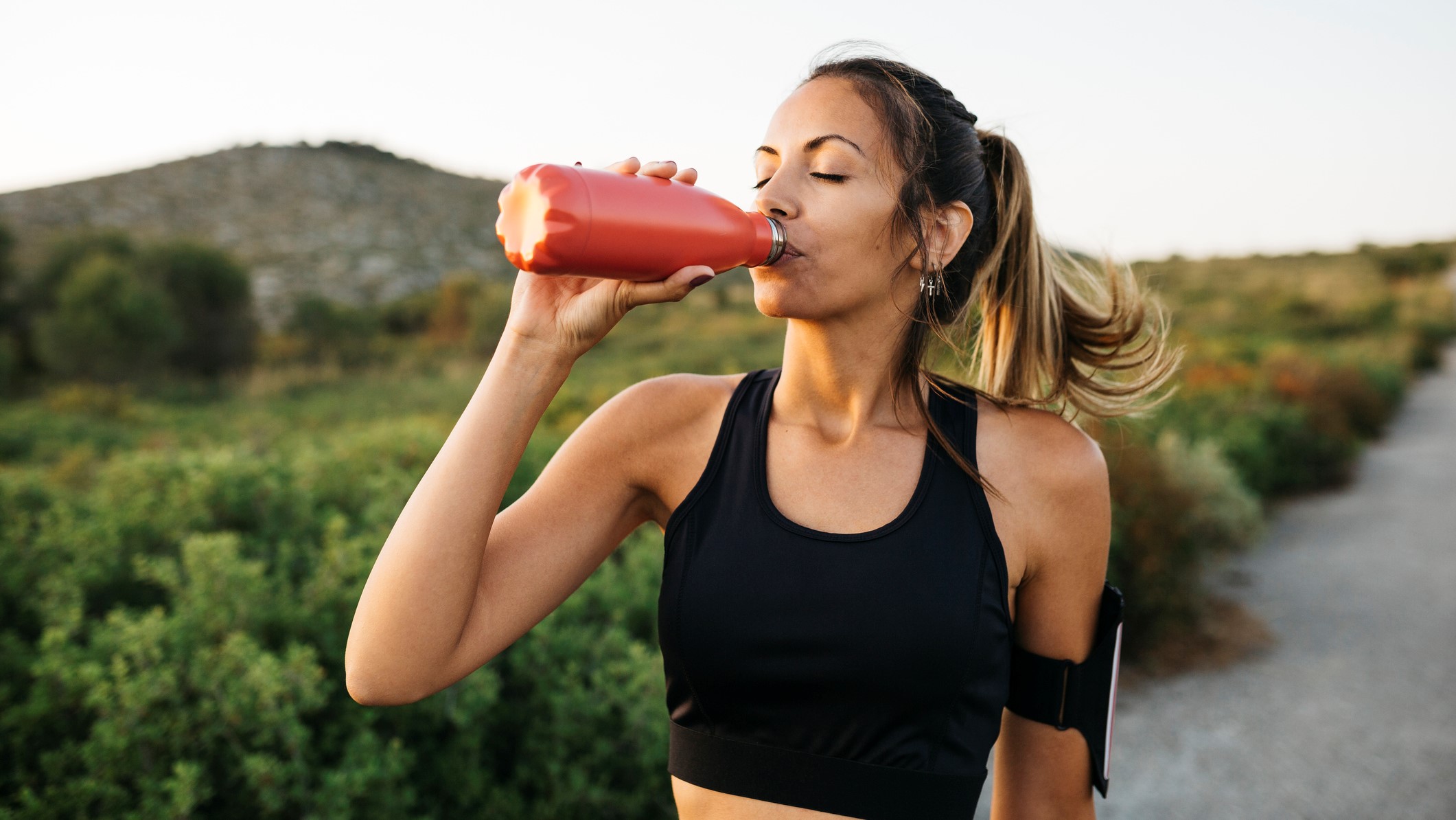Feeling bloated after a workout? Here’s why, according to a gut expert
Why you might feel bloated after working out

At the end of a workout you’re likely to feel tired, sweaty — and hopefully uplifted after that rush of endorphins — but if you’re left feeling uncomfortable and bloated, you might be wondering what’s going on. To find out more, we spoke to Clinical Nutritionist and gut expert, Lee Holmes from Supercharged Food.
The first thing to note is that it’s normal, and common, to feel bloated after a workout. You might have been breathing hard during an intense workout which can cause you to swallow air, or you might also have been gulping water during the workout, which can lead to bloating. "Drinking too much water as we exercise dilutes our sodium levels, causing our cells to retain more water leading to bloating and swelling," Holmes explains.
While there are a number of things that might cause post-workout bloating, it’s not a serious problem, and there are things you can do to avoid it in the future. As always, if you are worried about continuous or serious bloating, it’s worth consulting your doctor for more advice.
Looking for workout inspiration? Take a look at the 8 best Pilates exercises for targeting your core, the best exercises to do if you sit down all day, and what happened when we tried Khloe Kardashian’s exercise routine.
Why do I feel bloated after a workout?
Dehydration
If you haven’t drunk enough water in the hours before your workout, you might be dehydrated going into it, which can cause bloating. “When we’re dehydrated our stomach tries to compensate by trying to hold onto more liquid, leading to swelling in our belly as our body tries to retain as much water as possible,” Holmes says.
Overhydration
Sign up to get the BEST of Tom's Guide direct to your inbox.
Get instant access to breaking news, the hottest reviews, great deals and helpful tips.
Here’s where it gets a little confusing though — bloating can also be caused by overhydrating. As a general rule, when exercising it’s best to drink to thirst, but if you’re really thirsty and gulp water as your run, squat, or cycle, it can dilute your sodium levels, causing your cells to hold on to more water.

Breathing hard
During exercise, it’s normal to breathe harder as you raise your heart rate, but this deep breathing can be the cause of your post-workout bloat. “During a workout we breathe harder, leading us to suck in a lot of extra air that often ends up in our digestive system, not our lungs,” Holmes adds.
Post-exercise repair
Bloating isn’t always a bad thing, it’s sometimes your body’s way of repairing itself, Holmes explains. “After a workout session our body will naturally try to repair inflammation by sending extra fluid to our muscle tissues — while vital to recovery, this can leave you feeling ‘heavy’ and bloated.”
Eating too close to your workout
Finally, if you exercise too soon after eating a meal, it might leave you feeling bloated. “If you eat before exercise your body will try to multitask by digesting your food and sending blood to your muscles," Holmes says. "This makes your digestion become sluggish leading to the microbes in your gut releasing more gas to help break down your food."
What can I do to relieve bloating?
If you’re already bloated, what can you do to ease your symptoms? Remember that bloating isn’t permanent, and will often go away on its own naturally, but if you’re hoping to speed up the process, here’s what Holmes recommends.
Replace lost fluids: To restore your natural fluid balance, it’s a good idea to replace the fluids you might have lost during a sweaty workout. Drink three cups of water slowly to prevent you from swallowing more air.
Snack sensibly: Holmes recommends avoiding fatty, sugary, or fibrous snacks or meals after your workout. Opt for simple carbs and proteins such as greek yogurt, eggs, or lean meats, that will be easier for your body to digest.
Try stretching: Stretches like a standing forward fold, or a seated twist can help get things moving in your digestive tract and relieve bloating.
How to avoid post-workout bloating
So how can you avoid post-workout bloating? Holmes recommends planning your food around your workouts and ensuring you eat two to three hours before a workout to give your body time to digest the meal properly. The same applies to your fluid intake. “Drink water 30–60 minutes before starting your workout and if you do drink during your workout, take smaller sips,” she recommends.
It’s also a good idea to practice regulating your breathing if you do suffer from post-workout bloating. Think about your breathing as you would in a yoga or Pilates class and take slow, steady breaths as you run or lift weights.

Jane McGuire is Tom's Guide's Fitness editor, which means she looks after everything fitness related - from running gear to yoga mats. An avid runner, Jane has tested and reviewed fitness products for the past five years, so knows what to look for when finding a good running watch or a pair of shorts with pockets big enough for your smartphone. When she's not pounding the pavements, you'll find Jane striding round the Surrey Hills, taking far too many photos of her puppy.
